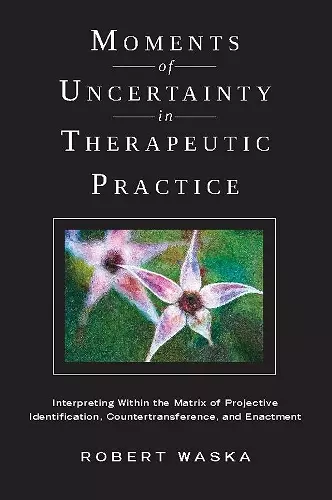Moments of Uncertainty in Therapeutic Practice
Interpreting Within the Matrix of Projective Identification, Countertransference, and Enactment
Format:Paperback
Publisher:Columbia University Press
Published:18th Nov '11
Currently unavailable, and unfortunately no date known when it will be back

One of therapy's greatest challenges is the moment of transference, when a patient unconsciously transfers emotion or desire to a new and present object--in some cases the therapist. During the course of treatment, a patient's projections and the analyst's struggle to divert them can stress, distort, or contaminate the therapeutic relationship. It may lead to various forms of enactment, in which the therapist unconsciously colludes with the client in interpretation and treatment, or it can lead to projective identification, in which the client imposes negative feelings and behaviors onto the therapist, further interfering with analysis and intervention. Drawing on decades of clinical case experience, Robert Waska leads practitioners through the steps of phantasy and transference mechanisms and their ability to increase, oppose, embrace, or neutralize analytic contact. Operating from a psychoanalytic perspective, he explains how to cope professionally with moments of transference and maintain an objective interpretive stance within the ongoing matrix of projective identification, countertransference, and enactment. Each chapter discusses a wide spectrum of cases and clinical situations, describing in detail the processes that invite a playing out of the patient's phantasies and the work required to reestablish balance. Refreshingly candid, Waska recognizes the imperfections of analysis yet reaffirms its potential for greater psychological integration and stability for the patient. He acknowledges the limits and frequent roadblocks of working with difficult patients, such as those who suffer from psychic retreat, paranoid phantasies, and depressive anxieties, yet he indicates an effective path for resetting the clinical moment and redirecting the course for treatment.
Robert Waska augments plentiful clinical material by detailing his process as he considers potential interventions. In a move that is all too rare among psychoanalytic writers, he includes even his interpretive failures, supplementing them with retrospective commentary that both elucidates and provides alternative formulations. Even seasoned clinicians will benefit from a volume that merits a place high on student reading lists. -- Nancy Vanderheide, Psy.D., president of the Institute of Contemporary Psychoanalysis
ISBN: 9780231151535
Dimensions: unknown
Weight: unknown
272 pages